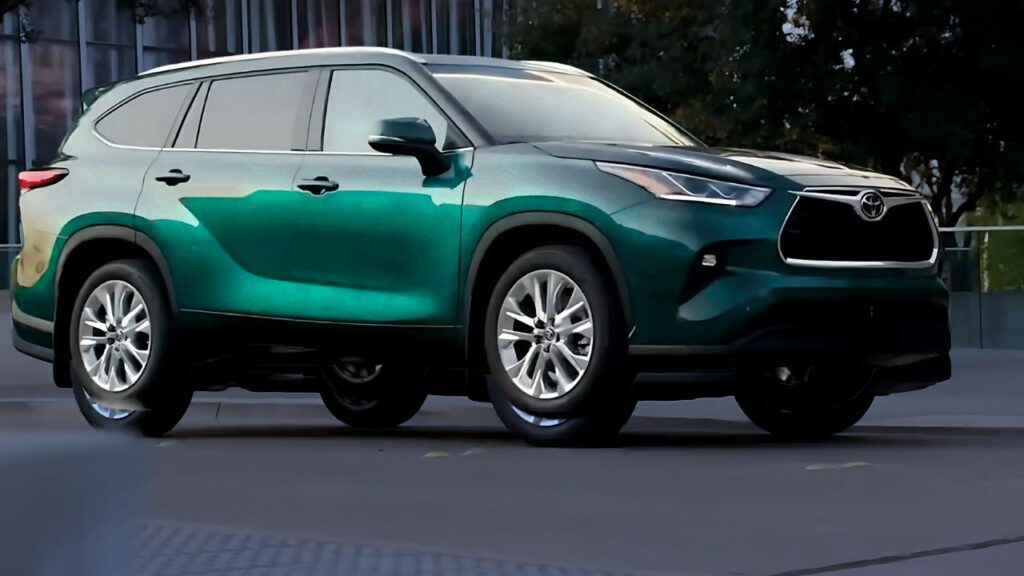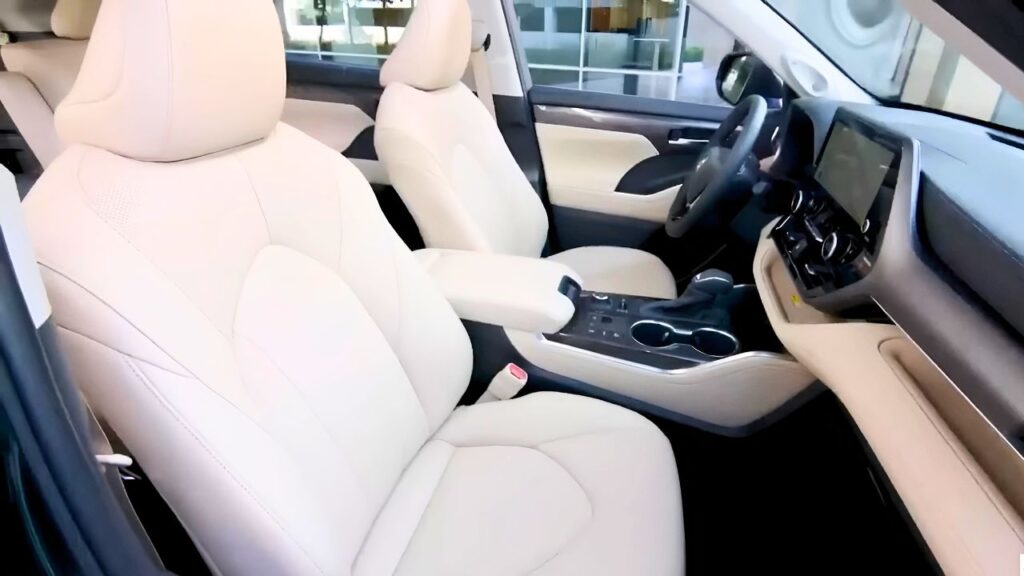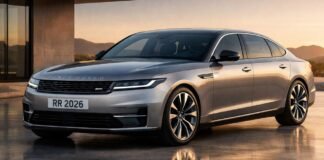
Toyota has been surprising us recently, refreshing its lineup with significant announcements. We’ve already seen the new M400 Tacoma, the return of the Land Cruiser, the 2025 Camry, and the 2026 4Runner.
These updates highlight Toyota’s commitment to modernizing and electrifying its vehicles. The brand is now setting its sights on three-row SUVs, particularly the Highlander, Grand Highlander, and an all-new electric model.
2026 Toyota Highlander EV Specs (Expected):

| Specification | Details |
|---|---|
| Platform | Likely updated e-TNGA architecture. |
| Powertrain | Dual-motor setup with AWD capability. |
| Range | Estimated ~300 miles per charge. |
| Charging | DC fast charging, 80% in under 45 minutes. |
| Seating | Three rows, up to 7 passengers. |
| Interior Features | Advanced infotainment, digital displays, and premium connectivity. |
| Safety | Toyota Safety Sense with advanced driver assistance. |
| Price (Estimated) | Starting around $55,000. |
| Production | Expected in 2026 at Indiana facility. |
| Competitors | Kia EV9, Hyundai Ioniq 9. |
Investments in Electrification
One of the biggest developments is Toyota’s heavy investment in electrification. The company has allocated $1.4 billion to its Indiana plant, creating up to 340 new jobs to support the production of an all-new electric vehicle by 2026.
This plant currently builds the Highlander, Grand Highlander, and Lexus TX, making it a logical hub for Toyota’s next family-oriented BEV (Battery Electric Vehicle).
Adding to the momentum is Toyota’s North Carolina battery manufacturing facility, which will supply lithium-ion batteries for these new models. With production set to begin in 2025, Toyota is ensuring its electrification plans remain on track.
Speculations and Design Insights
Industry insiders and digital artists are abuzz with speculation about the new EV. The upcoming model could be a version of the Highlander, Grand Highlander, or a completely new three-row SUV.
According to virtual car artist Vince Burlap, the electric SUV might share its chassis platform with the current Highlander, integrating seamlessly with models produced at the Indiana plant.
Burlap’s speculative renderings suggest a futuristic design, blending the Highlander’s bold aesthetic with sleek EV touches from Toyota’s current electric lineup, like the bZ4X. Imagine a Highlander with a bold front fascia, sleek LED headlights, and a smooth, aerodynamic silhouette.
Interior and Performance
Inside, the 2026 Highlander EV is expected to offer a tech-filled cabin featuring advanced infotainment and safety systems, along with seating for up to seven passengers.
Under the hood, Toyota may utilize an updated version of the bZ4X platform, providing impressive range and sufficient power for long-distance family road trips. This combination of practicality and performance could make the Highlander EV a standout option in the electric SUV market.
Positioning in a Competitive Market
Toyota’s entry into the electric SUV space is strategic. With competitors like Ford’s Mustang Mach-E and Chevrolet’s Blazer EV making waves, the Highlander EV needs to deliver. Toyota’s strong brand reputation and loyal customer base position it well to become a major player in the segment.
The Highlander EV’s family-friendly focus, featuring three rows of seating and ample space, will appeal to families seeking an electric vehicle without sacrificing comfort or practicality.
Production Timeline and Market Release Considerations
Recent reports indicate that Toyota has postponed the start of electric vehicle production in North America to early 2026, citing design adjustments and slowing EV sales.
The production of the three-row SUV, initially planned for late 2025 at Toyota’s Kentucky facility, is now expected to commence in the first half of 2026.
This delay reflects Toyota’s strategic approach to align with current market demands and ensure the delivery of high-quality products. Despite the postponement, Toyota remains committed to introducing multiple battery electric vehicle models in the U.S. over the next two years.
